Every (Other) Breath You Take
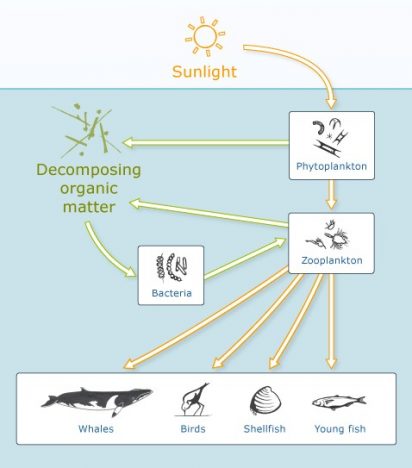
We often consider trees and other terrestrial plants to be our lifeforce, the producers of the air we breathe. Yet this is only half true – phytoplankton produce roughly 50% of the oxygen we breathe. Phytoplankton are microorganisms that drift in the ocean and photosynthesize. They are often recognized for their role in harmful algae blooms (HABs), but they are so much more important than we give them credit for.
Read moreGlobal Pandemic, Local Fish: How Community-Supported Fisheries Bring Seafood Home
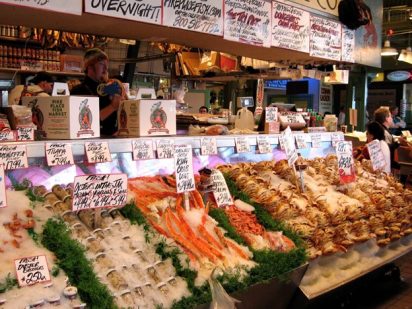
The State of Seafood: Globalization and Alternative Seafood Networks
Depending on where in the world one lives, seafood can be anything from a once-in-a-while luxury to a common household staple with meals. From finfish to crustaceans to shellfish, from freshwater to the open oceans, these aquatic organisms transform into widely loved, culturally valued, and nutritionally significant foods when presented on a plate.
The Fate of Frenchman Bay: a Contentious Battle Over Downeast Maine’s Marine Resources
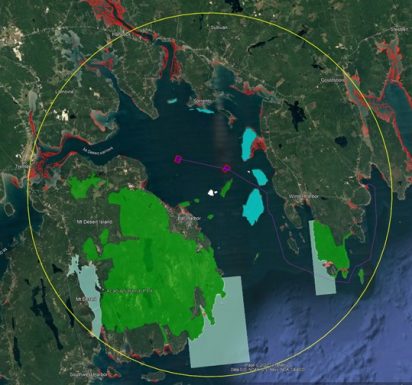
Visible from the mountain tops of Acadia National Park, Frenchman Bay is both a recreational haven for visitors from across the globe and the economic and sociocultural backbone of Maine’s Downeast coast. Last year, seemingly overnight, a fight over this vital coastal hub began. Driveways and lawns across northeastern Maine have sprouted signs that declare, “Keep Frenchman Bay Fish Factory Free” and “Stop Industrial Scale Aquaculture.” Often touted as the future of sustainable seafood in Maine, the growing aquaculture industry appears to have hit a roadblock in this far-flung corner of the United States.
Read moreBridging The Gap: How Climate Activists Can Overcome Political Boundaries
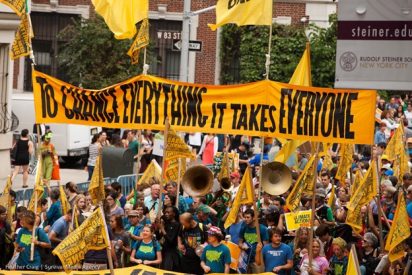
Raise your hand if you have ever come away from an emotionally- or politically-charged argument about climate change, whether it be over Thanksgiving dinner or a Facebook comments thread. Did you feel like you had a valuable discourse or came to a mutual understanding? Why is it so difficult to talk about climate change and climate action, especially with people who think and vote differently than you?
Conservation refugees: The insidious nature of Western conservation regimes
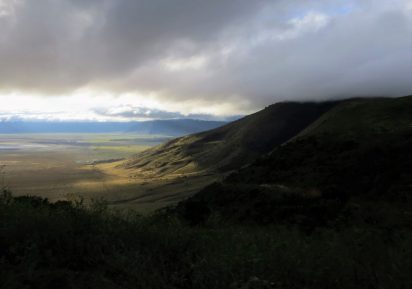
Human-Nature Duality and Early Environmentalism
The separation of humans and nature has dominated Western conservation ideology for over a century. Leaders of the early Western ecological movement in North America constructed a division between Western civilization and the natural world, resulting in the concept of “wilderness.” Settlers reported the seemingly pristine condition of the landscape, which was in contrast to the heavily industrialized land from which they had departed in Europe.
Aesthetic Obsolescence: The Quick and Dirty of Fast Fashion

Fast fashion is an easy target for righteous criticism. Environmentally costly but cheap to buy, and systemically unscrupulous yet totally ubiquitous, public opinion has rightly turned against fast fashion in the last several years. Despite a growing awareness of the hidden costs of fast fashion, most people have an imprecise understanding of what “fast fashion” really means and the industry remains highly lucrative.
Maritime Manhattan From 1880 to 2021: A Photo Essay
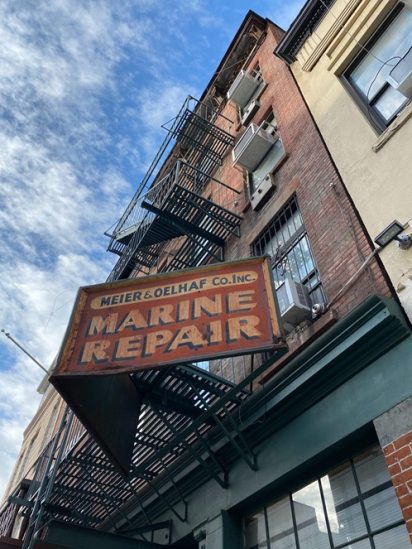
At the 2021 Pacific Marine Expo I heard a poem describing a gradual loss of Seattle’s working waterfront. Home for the holidays in New York City, I wanted to give a visual description of a similar process that has happened here in Manhattan, located in Lenapehoking, the homeland of the Lenape people.
Throughout my childhood I could still see structural ghosts of a bustling maritime past on the Hudson River and East River.
Beyond recognition: Decolonizing the use of knowledge systems
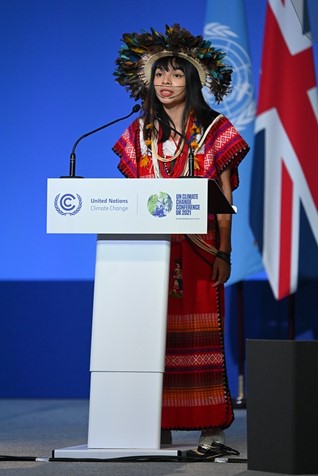
When I began working on my thesis, I spent months conducting a literature review through publication databases. Article after article, I would find the phrase “as a part of a long-term ecological study” somewhere in the introduction or methods sections. I have even used those words before in my own work when referencing “long-term” datasets. But then I began to reflect on what constitutes long-term?
Read moreManaging Graduate School with Depression

As a student of Western science, my immediate intuition was to begin this story with data. I thought about surveying the students in my department about their experience with mental health in graduate school, as if there was a threshold of collective suffering that would validate my struggle, and perhaps make others feel less alone too.
The thing is, these studies have been done.
What Does a Changing Ocean Mean? Cultural Importance in the Face of Climate Change and Colonialism

Communities and civilizations have thrived along the coastlines throughout history, using the ocean as a source of food, income, travel, and recreation. However, the ocean has also witnessed conquest, colonization, imperialism, war, displacement, and death. The ocean has served a multitude of different purposes and can represent or symbolize many different things, shaping the lives and identities of individuals, communities, and nations around the world.
Read moreFire in the Straights: Marine Disaster in the Pacific Northwest Amid the Global Shipping Crisis

Beaches coated with plastic pellets and burnt fiberglass. Dead fish, turtles, and birds washing up with each crashing wave. These were the scenes in Sri Lanka after the sinking of the X-Press Pearl due to a shipping container fire this past summer. The fire on board the X-Press Pearl resulted in a total loss of the vessel, an oil spill, and tons of plastic debris ending up in the ocean.
Nautical Newcomers: How the Pandemic has Changed Recreational Boating

Leisure boating, much like life, has always entailed a certain amount of risk, risk that has considerably increased since the onset of COVID-19. The greatest danger to recreational boaters, at least in coastal New England, has historically been the harsh currents and severe riptides of the Atlantic and its tributaries. However, since the start of the pandemic, a new danger has eclipsed the familiar maritime hazards, causing headaches—and too often, collisions—within small mainland ports: amateur boaters.
Read moreIn Between Anguish and Action: Dealing with Eco-Anxiety in 2021

Eco-anxiety is one of the new buzzwords being used frequently in the environmental world. According to an episode of Speaking of Psychology, a podcast of the American Psychological Association, eco-anxiety can be described as a chronic fear of environmental doom. This is followed by eco-grief, or a mourning of current and potential changes to the environment. As an undergraduate, I took several environmental and marine science classes where the material left me feeling hopeless.
Read moreMayhem in the High Seas: Human Rights Violations in Illegal Fishing

A lot of press covers the many ecological impacts of illegal fishing, but these articles often overlook how illegal fishing perpetuates slavery and human rights violations at sea. Marine pillaging by illegal fishing benefits from human suffering with systems that support forced labor, further driving environmental degradation in a devastating feedback loop. Forced labor is not at the conversational forefront of illegal, unreported and unregulated (IUU) fishing, yet it sheds light on a simple truth of high seas crime: its hidden nature allows for a plethora of illicit activities.
Read moreFour Ways Seattle Environmentalists Get Involved
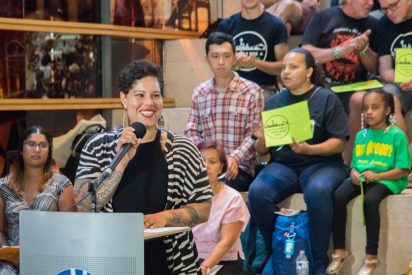
Seattle has a reputation as an environmentally conscious city. Known for its picturesque natural beauty, social liberalism and perennial appreciation of flannel, Seattle certainly looks the part. Crunchy appearances and early adoption of the now-statewide plastic bag ban notwithstanding, city-level environmental policy proposals remain a niche interest, especially compared to juicy news like outspoken socialists on City Council or our soda tax.
Read moreSocial Media and Environmental Activism: An Evolving Relationship
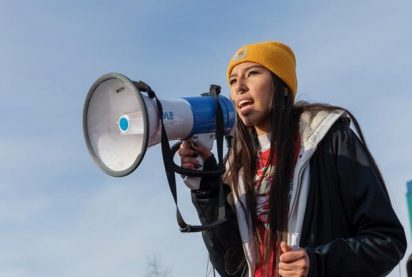
Since you’re reading this article on a screen, chances are good that you have an account with at least one social media platform. Approximately 7 in 10 Americans use social media to share information, with 4.48 billion users worldwide. Between Twitter, Instagram, TikTok, Facebook, Discord, and the myriad other websites and apps that exist, there is no shortage of thoughts and information being shared online, every second of every day.
Read moreSeawalls as Habitat
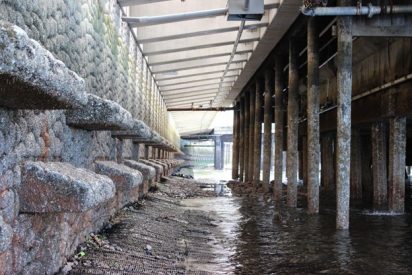
In its most recent report, the United Nations Intergovernmental Panel on Climate Change (IPCC) continued to emphasize the speed with which global sea levels are rising, contributing to coastal flooding and erosion. High sea levels that historically have occurred once-a-century may become once-a-year by 2100. The US is no exception to this trend. The map below, a screenshot from NOAA’s interactive Sea Level Trend viewer, reveals quickly to the eye that sea levels are rising, at varying speeds, on all of our coasts.
Read moreWelcome to Currents: Meet the Board!

Editor’s note: Hello and welcome to Currents 2021-2022! As the new executive board we have been putting out articles, together with our wonderful writers, since last month – and we thought it was about time to introduce ourselves. We are all second year students, excited to experience SMEA in person for the first time. Take a look at our mission statement, courtesy of the hard work of last year’s executive board.
Reflections on the June 2021 Heat Wave

From June 26-28, 2021, the Pacific Northwest experienced an unprecedented heat wave. Despite news coverage moving onto other immediate concerns before hashing out concrete policy responses, it felt like a pivotal moment in climate policy as it was happening. I am worried that the world may be moving on without committing to appropriate action. In hopes of contributing to a call for impactful policy response, I offer my personal account of the heat wave and my understanding of the broader social context.
Read moreEmbracing blue carbon in regenerative natural resource practices
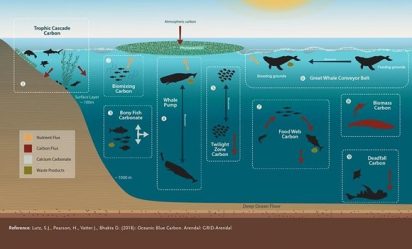
Over the span of human existence, many cultures around the globe have lived in relative stability with natural ecosystems, often cultivating their biodiversity and receiving sustenance from their richness. Can we envision a future where the dominant cultures around the planet again act as a beneficial species to the ecosystems that support us? How might human actions lead to cultures of permanence and stability by supporting the health of the planet’s climate and ecosystems?
Read more